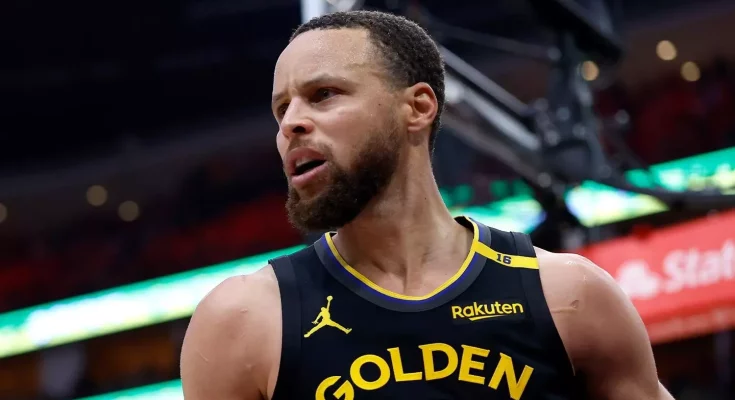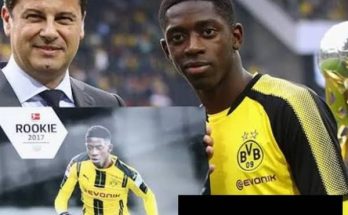Stephen Curry, one of the most iconic figures in the history of the NBA and arguably the greatest shooter the game has ever seen, has spent his entire professional career with the Golden State Warriors. Since being drafted seventh overall in 2009, Curry has led the franchise to four NBA championships, won two league MVP awards, and revolutionized the way the game is played through his unmatched shooting range and quick release. For more than a decade, his name has been synonymous with the Warriors. The idea of Curry suiting up in another jersey has always seemed sacrilegious to fans and even unthinkable to the front office. But in a recent interview that sent mild shockwaves through the NBA community, Curry acknowledged that there is one — and only one — team he’d ever consider playing for other than Golden State: the Charlotte Hornets.
This revelation doesn’t come completely out of left field. Curry was born in Akron, Ohio, but he grew up in Charlotte, North Carolina, where his father, Dell Curry, spent the majority of his NBA career playing for the then-Charlotte Hornets. Steph attended Charlotte Christian School and established deep ties to the local basketball community. Even his choice to attend nearby Davidson College instead of a more traditional basketball powerhouse reflected his loyalty to his roots. So when he says that Charlotte would be the only other franchise he’d ever consider playing for, it resonates with personal authenticity. It’s not about chasing another ring or joining a superteam—it’s about honoring a family legacy and the city that raised him.
What’s most significant about Curry’s comment is not that he’s actively seeking a trade or angling for a move away from the Warriors. In fact, he was quick to emphasize that his heart and loyalty remain with Golden State. Rather, his statement seems more like an acknowledgement of the sentimental possibility that, if ever circumstances changed dramatically—say, if the Warriors entered a deep rebuild or if Curry sought a final lap closer to home—Charlotte would be the only other viable destination.
This admission has come at a time when the Warriors are experiencing a noticeable shift in organizational direction. The team has been dealing with aging veterans, declining playoff performances, and a need to build toward the future without fully letting go of the past. Rumors have swirled around potential trades involving young players like Jonathan Kuminga, Moses Moody, and even long-serving veterans such as Draymond Green or Andrew Wiggins. The Warriors have been trying to strike a delicate balance between maximizing the remaining championship window of their current core and preparing for life after Curry, Thompson, and Green.
Jonathan Kuminga, in particular, has been at the center of trade speculation throughout the offseason. The 21-year-old forward, drafted seventh overall in 2021, has shown flashes of brilliance and potential stardom. His combination of athleticism, defensive versatility, and improving offensive skill set makes him one of the most intriguing young talents in the league. Yet, despite his progress, his role with the Warriors has often felt limited or inconsistent. This has led to frustration on both sides and ignited conversations about whether he would be better off on a team that can offer him more playing time and offensive responsibility. Several rival teams, including the Orlando Magic and Toronto Raptors, have reportedly expressed interest in Kuminga.
The trade rumors involving Kuminga are emblematic of the Warriors’ broader identity crisis. On one hand, they still have a generational superstar in Curry, who, even at age 37, continues to play at an elite level. On the other hand, the rest of the core is aging rapidly, and the team has failed to seriously contend for a title since their 2022 championship. Their early exit in the 2024 playoffs and their inconsistent play throughout the regular season have sparked debates about whether they should go all-in one last time around Curry or pivot fully toward a youth movement.
Against this backdrop, Curry’s statement about Charlotte takes on additional meaning. If the Warriors were to trade Kuminga in exchange for more veteran help—say, a high-level two-way wing or a reliable big who can stretch the floor—it might signal that the team is trying to maximize the present. But if such a trade fails to significantly move the needle and the team continues to stagnate or decline, Curry could be faced with an uncomfortable decision. Would he want to spend the final years of his career carrying a mediocre team, or would he prefer to make a sentimental return to his childhood home and possibly serve as a mentor to a young, rebuilding Charlotte squad?
The Hornets, for their part, are not close to contending. They’ve been mired in the lottery for much of the past decade and have struggled to build a stable foundation around LaMelo Ball, their talented but oft-injured point guard. However, they’ve made some intriguing moves in the past two seasons. The arrival of Brandon Miller and the acquisition of key role players suggest that Charlotte is trying to build a core capable of eventually competing in the East. Adding Curry, even if only for a season or two, would bring instant credibility, fan excitement, and possibly attract other free agents who would want to play alongside one of the game’s all-time greats.
Curry’s loyalty to the Warriors has never been in question. He’s repeatedly stated that he wants to finish his career with the team that believed in him when others doubted his durability and ceiling. The franchise, in return, has built everything around him—from the offensive system to the personnel to the branding of the team’s identity. He has become the face of a dynasty and the symbol of a basketball revolution. But even dynasties fade, and athletes, no matter how great, age. The Warriors’ front office knows that they are approaching an inflection point, and their decisions this offseason—especially regarding Kuminga—could influence how long Curry remains in blue and gold.
Moreover, the idea of Curry in a Hornets jersey isn’t just about sentimentality or nostalgia. From a basketball perspective, it might actually make sense in the right context. A less physically taxing role, playing closer to home, and the chance to mentor young players could provide a satisfying chapter to close out his career. It wouldn’t be about titles or MVPs at that stage—it would be about legacy, storytelling, and giving back to the community that nurtured him. And for a player as thoughtful and grounded as Curry, those values might matter just as much as rings.
It’s also worth noting that Curry’s willingness to even acknowledge another team is a rare move in the modern NBA, where stars frequently move franchises and declare loyalties only to reverse course months later. Curry has been remarkably consistent and principled throughout his career. So when he says something like this, it carries weight. It’s not a veiled shot at the Warriors or a signal of dissatisfaction. It’s a candid, heartfelt nod to his upbringing and the role that Charlotte played in shaping who he became.
As the Warriors evaluate their next steps, the Kuminga trade rumors will continue to be a major storyline. If they decide to move him for a win-now player, they better be right—because such a move might extend their window slightly but also cost them their best chance at bridging the gap between eras. If they choose to keep Kuminga and fully invest in his development, they may have to accept a few lean years and trust that the young core will eventually rise. Either path comes with risk, and either path will shape how long Stephen Curry remains content with his current situation.
In the end, Curry’s mention of Charlotte serves less as a warning and more as a humanizing detail in the ever-changing narrative of professional sports. It reminds us that even legends have origins and that sometimes, even the brightest stars wonder what it would feel like to return home. For now, Warriors fans can rest easy—Curry is still their leader, their legend, their miracle-worker. But if the winds shift and he ever does decide to wear purple and teal, it won’t be betrayal. It will be a homecoming.



